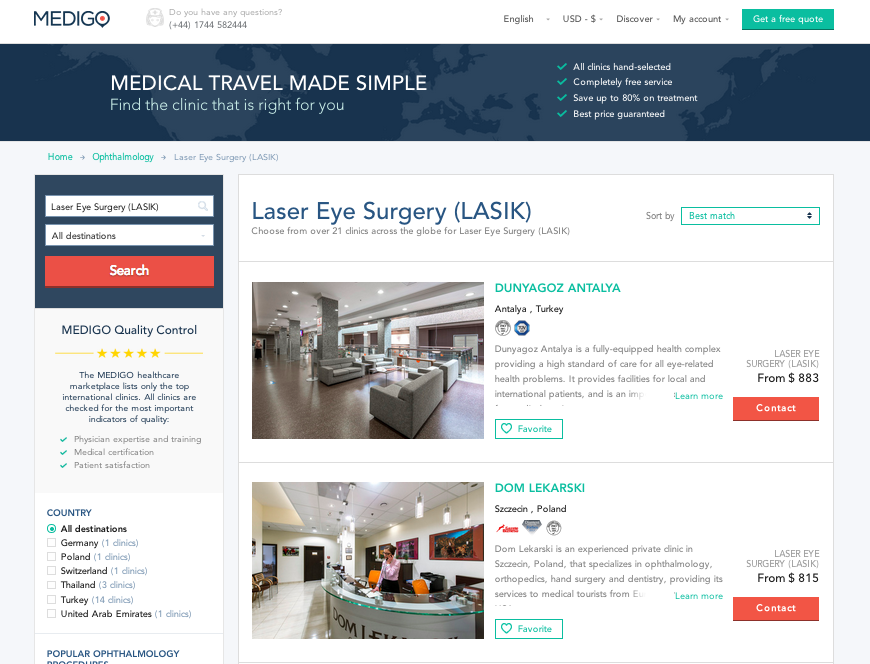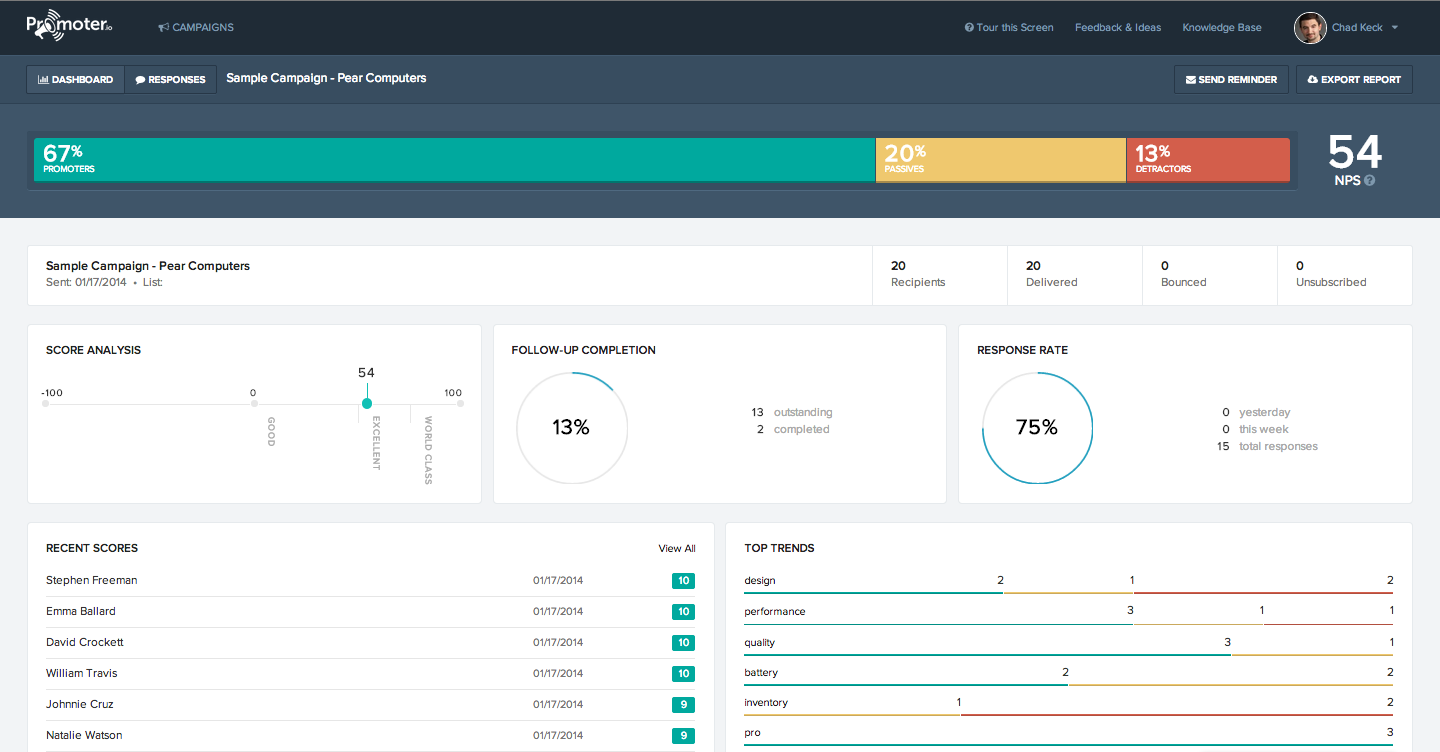 A Q&A with Medigo co-founder and COO Pawel Cebula. The Berlin-based healthtech startup announced last week the closing of a €5 million Series A funding round, led by Accel Partners. It was founded last year by Cebula, Ugur Samut and Ieva Soblickaite. The team previously raised €2.1 million in Seed funding earlier this year.
A Q&A with Medigo co-founder and COO Pawel Cebula. The Berlin-based healthtech startup announced last week the closing of a €5 million Series A funding round, led by Accel Partners. It was founded last year by Cebula, Ugur Samut and Ieva Soblickaite. The team previously raised €2.1 million in Seed funding earlier this year.
SUB: Please describe Medigo and your primary innovation.
Cebula: Medigo is a medical tourism platform that seeks to connect patients searching for a medical procedure with clinics and hospitals around the world, allowing them to compare prices, facilities, and medical experts with options at home so they can make an informed decision regarding who to trust with their healthcare. What makes Medigo unique is our insistence on high quality, free access to information, and price transparency, which allows the patient to know up-front what the cost of their procedure will be.
SUB: Who are your target markets and users?
Cebula: Our target user is underserved by their healthcare system at home and unable to get the medical procedure they want or need because of cost, problems with access to care or a lack of quality facilities. Right now, we are focused on the English-speaking market in the U.S., UK, Australia, and Canada. Over the past year, we’ve developed our product to fit the market needs and are seeing traction in dentistry, plastic surgery, ophthalmology, reproductive medicine, orthopedics, and bariatric surgeries.
The procedures people are interested depend heavily on the market. In the U.S., for example, there is a price incentive to travel. A knee replacement in the U.S. costs, on average, $50,000 whereas top hospitals around the world offer the same procedure for $10,000 to $15,000. In the UK, it’s less about the cost but more about reducing waiting time for a procedure. In other markets, it’s about finding quality specialist care. In all of our markets, however, patients need access to care. We also find that we are helping patients looking for elective medical procedures, which are not often covered by insurance.
SUB: Who do you consider to be your competition, and what differentiates Medigo from the competition?
Cebula: We don’t have a competitor that can offer the same breadth and scale of our services. We don’t compete with local hospitals because our patients are typically seeking elective procedures that are cost-prohibitive at home. There are some other sites which operate in the same space as we do, but Medigo is by far the largest startup in this area.
SUB: You just announced that you’ve raised €5 million in new funding. Why was this a particularly good time to raise more funding?
Cebula: We are ready to expand our marketplace on both the supply- and demand-sides and to pilot new features for the product. Over the next year we plan to offer medical complications insurance, travel accommodations booking and the ability to pay for procedures up-front.
SUB: How do you plan to use the funds?
Cebula: We are continually improving our product and making the content richer and easier-to-use and bringing more transparency to the market by listing more hospitals on the platform. We are also working to educate consumers about their options in healthcare and encouraging the empowered patient movement.
SUB: What was the inspiration behind the idea for Medigo? Was there an ‘aha’ moment, or was the idea more gradual in developing?
Cebula: There was not one ‘aha’ moment, but rather a series of events that had an impact on how the idea developed. I was already aware of the medical travel phenomenon, but my first personal experience with it occurred when I became frustrated when looking for emergency dental care while living in China and was unable to find a quality dentist who spoke English. After hours of unfruitful online research, I had to go to the first dentist I could find. Later, as I helped my mother, who is a doctor, develop an international website for her practice, I realized that many doctors are not equipped and simply don’t have time to manage their own online presence, and that there was a market for an online tool to help patients connect to medical care abroad.
SUB: What were the first steps you took in establishing the company?
Cebula: Extensive market research and customer development was necessary to develop a business model. We spoke with a lot of clinics and patients to discover what both sides needed, and we found a way to bridge the gap between them.
SUB: How did you come up with the name? What is the story or meaning behind it?
Cebula: At Medigo we believe that everyone deserves access to quality healthcare, even if that healthcare is quite a distance away. As a combination of the words ‘medicine’ and ‘go,’ we empower patients with the knowledge they need to choose the best clinic to suit their needs and then we simplify the process to allow them to go to that clinic.
SUB: What have the most significant challenges been so far to building the company?
Cebula: The most significant challenges have been developing brand recognition, educating our market and building up trust. For Medigo to be successful, we need a high level of credibility and we need consumers to understand that traveling for medical care is not a new concept—we are simply presenting it on a scale they may not have considered before. Finally, scaling on both the supply- and demand-side is an ongoing process, but we are making progress, especially in the U.S.
SUB: How do you generate revenue or plan to generate revenue?
Cebula: Medigo is free for patients to use. We receive a commission after a patient has been treated at a Medigo hospital or clinic. We are also exploring other revenue streams at this moment.
SUB: What are your goals for Medigo over the next year or so?
Cebula: We are expanding to new market segments right now. We are also piloting a medical complications insurance program for patients, and we are looking to expand our services to include booking travel accommodations and transportation.











